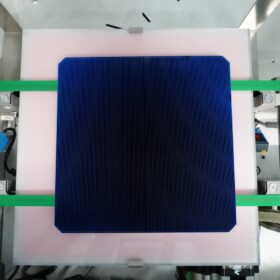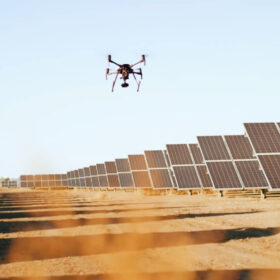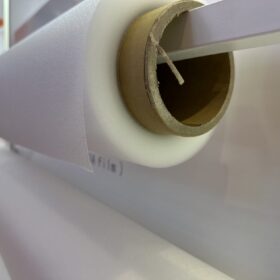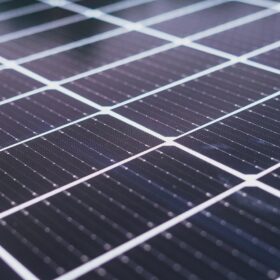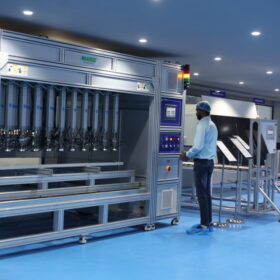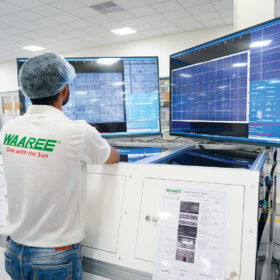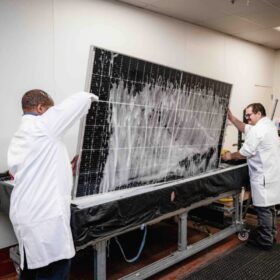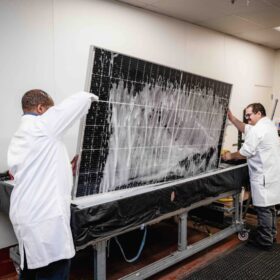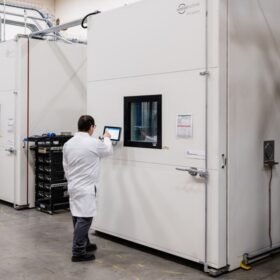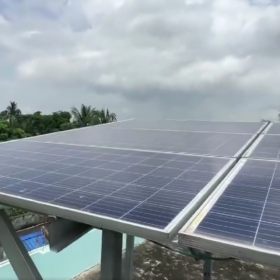Current UV tests overestimate TOPCon solar module degradation
Fraunhofer Institute for Solar Energy Systems ISE (Fraunhofer ISE) has found that current UV testing methods overestimate degradation in tunnel oxide passivated contact (TOPCon) solar modules, as dark storage after UV exposure causes temporary efficiency losses that largely reverse under sunlight.
U.S. solar facilities lost $5,720 per MW to equipment underperformance in 2024
A report from Raptor Maps said solar power losses from equipment failures, extreme weather damage and more contributed to losses.
New research shows correlation between PV module electrode corrosion and damp heat test
New research shows correlation between PV module electrode corrosion and damp heat test
A research group in Japan identified a correlation between damp heat test of 1,000 hours to 3–6 years of field exposure in humid areas and changes in acetic acid concentration in photovoltaic modules. Their analysis also showed that an acetic acid concentration over 10,000 μg/g can be critical.
Gautam Solar files patent for AI-based system to detect PV panel defects
Gautam Solar’s solution leverages advanced imaging and artificial intelligence to enhance the efficiency and precision of defect detection in PV cells.
Waaree Energies secures NABL accreditation for advanced testing lab
Waaree Energies Ltd has secured NABL accreditation for the PV Module Test Lab (PMTL) at its Chikhli module manufacturing facility in Gujarat, following the first achieved for its Thumb manufacturing facility.
Waaree wins as pv magazine Awards recognizes Indian solar manufacturing
Gujurat based Waaree Energies takes the Publisher’s Pick prize at the pv magazine Awards 2024 in recognition of the company’s impressive solar production capability and ambitious plans for the future. It is the first time an Indian PV company has received this award.
PVEL scorecard shows ‘relevant risks’ for TOPCon technology
The results of this year’s Kiwa PVEL scorecard have shown that TOPCon technology is more vulnerable than PERC, and the failure rate at bill of materials has increased to 41%, the highest in history, according to the testing lab.
‘TOPCon technology comes with three or four relevant risks that should be known’
The results of this year’s Kiwa PVEL scorecard have shown that TOPCon technology is more vulnerable than PERC, and the failure rate at BOM level has increased to 41%, the highest in history, according to the testing lab.
Kiwa PVEL, Kiwa PI Berlin outline best practices for PV module quality
Kiwa PVEL and Kiwa PI Berlin have published a white paper that uses recent module testing and in-factory data to guide the best use of testing and inspection metrics. The paper aims to ensure that solar modules meet acceptable quality standards.
PM Surya Ghar Muft Bijli Yojana: Challenges and Solutions
Mandating stringent quality and performance standards is imperative to safeguard consumers from potential exploitation in the burgeoning rooftop solar market. The technology to do this exists, but we need to see if the will is there.
